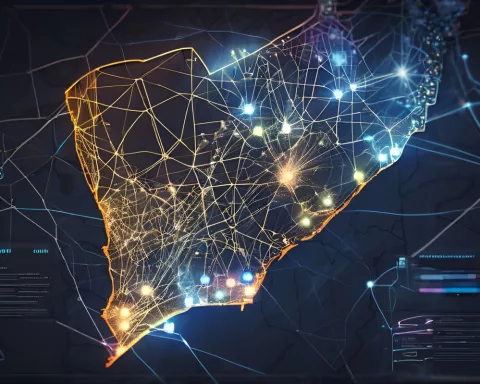The City’s customer offices will be temporarily closed from October 5 to 7, 2024, for important system upgrades, but essential services like motor vehicle registration will still be available. This short break is all about making things easier and faster for residents, who can now enjoy online payment options and handy QR codes for quick transactions. Residents can pay their municipal bills at local stores like Shoprite and Pick n Pay, showing how technology is changing city life for the better. Overall, this pause will help the City provide an even smoother experience for everyone in the future!
What are the key changes during the City’s temporary office closure?
The City’s customer offices will be closed from October 5 to 7, 2024, for system maintenance. Essential services like motor vehicle registration will continue. This closure aims to enhance digital efficiency, allowing residents to utilize online payment options and QR code features for seamless transactions.
Temporary Office Closure: A Step Towards Enhanced Service
In the vibrant fabric of city life, where tradition melds with innovation, the City’s customer offices are poised for a brief hiatus. From October 5 to 7, 2024, these offices will undergo essential system maintenance—a strategic pause aimed at bolstering future efficiency and service quality. Notably, services related to motor vehicle registration and licensing will remain operational, underscoring the City’s dedication to providing uninterrupted critical services.
As residents acclimate to this short-lived disruption, it’s an opportune moment to reflect on technology’s role in reshaping interactions with municipal services. The City has emerged as a leader in embracing digital platforms, offering a plethora of online payment options for residents. Councillor Siseko Mbandezi, who plays a pivotal role in the City’s financial strategy, acknowledges the inconvenience yet underscores the necessity of these updates for enhancing service delivery. As technology continues to evolve, so too must the systems that form the backbone of urban management.
Embracing Digital Efficiency: A New Era of Municipal Services
In today’s rapidly advancing world, digital platforms have revolutionized customer interactions, turning routine transactions into seamless experiences. Residents now enjoy the convenience of paying municipal accounts at various retail outlets like Shoprite/Checkers, Pick n Pay, and Woolworths. This integration into everyday shopping venues signifies a broader movement towards ease and accessibility in urban living.
The City has made great strides in facilitating online payments, with platforms such as Powertime and EasyPay granting residents straightforward access to their accounts. By adding the City of Cape Town as a beneficiary in their internet banking profiles, residents can easily manage their accounts from home. This transition towards digital transactions is emblematic of a larger shift towards e-governance, where technology narrows the gap between citizens and their local governments.
An innovative feature now available is the introduction of QR codes on municipal invoices. This advancement simplifies the payment process by enabling residents to access their bank’s secure portal with a quick scan, eliminating the need for manual entry of details. Such enhancements exemplify the City’s commitment to leveraging advanced technology, improving both the efficiency and security of financial transactions. As urban centers continue to evolve, these digital tools play a crucial role in fostering sustainable and responsive civic infrastructures.
Maintaining Essential Services Amidst Change
Despite the temporary halt to some services, motor vehicle operations remain unaffected, providing continuity in essential services. Residents can renew their licenses online, ensuring that daily life proceeds without disruption. The City’s dedication to sustaining these crucial operations highlights the careful balance between necessary system updates and uninterrupted service delivery, reflecting strategic foresight in urban planning.
Additionally, the City has opened digital pathways for handling traffic-related matters. Residents can now view and pay fines and warrants online, streamlining what was once a cumbersome process. This initiative not only saves time but aligns with a broader cultural shift towards transparency and accountability in civic administration. Moreover, fines issued before July 1, 2022, can be settled at selected Spar outlets, while more recent fines are payable at various retail locations. This flexibility showcases an adaptive approach to public service, catering to diverse preferences and needs.
The expansion of electronic payment methods, including card payments, EFTs, and mobile payment apps like Snapscan and Zapper, reflects the diverse financial landscapes within which urban populations operate. By offering a wide range of payment options, the City acknowledges the varied technological and economic contexts of its residents, ensuring inclusive access to municipal services.
Historical Context and Future Aspirations
As we delve into this narrative of urban transformation, it’s essential to appreciate the historical context shaping modern governance. The evolution from traditional office-based interactions to digital platforms mirrors larger societal trends. From the mechanization of the Industrial Revolution to the connectivity of the Digital Age, cities have continuously adapted to changing technological landscapes. This adaptability is key to managing the complexity of urban ecosystems, where innovation propels progress.
Artistic movements provide additional insight into these transitions. Just as Impressionism captured fleeting moments with vibrant fluidity, modern urban management captures the pulse of cities through data and technology. The City’s embrace of digital solutions reflects an understanding of this dynamic, capturing the essence of urban life with precision and clarity.
In conclusion, the temporary closure of the City’s customer offices serves as a poignant reminder of the ongoing evolution within urban environments. It underscores the intersection of tradition and innovation, where necessary maintenance paves the way for enhanced service delivery. As residents adjust to these changes, they become part of a larger narrative—one where cities strive to balance historical legacies with future ambitions. Through digital advancements and strategic foresight, the City remains committed to improving residents’ lives, ensuring that the rhythm of urban life continues seamlessly.
FAQ: Navigating Urban Evolution: The City’s Digital Transformation
What are the dates for the temporary closure of the City’s customer offices?
The City’s customer offices will be closed from October 5 to 7, 2024, for essential system upgrades.
Which services will remain available during the closure?
Essential services such as motor vehicle registration will still be available during the closure, ensuring that critical operations are uninterrupted.
How will the closure benefit residents?
This temporary pause is designed to enhance digital efficiency, allowing residents to benefit from new online payment options and QR codes for quick and seamless transactions in the future.
Where can residents pay their municipal bills during this time?
Residents can pay their municipal bills at local retail outlets such as Shoprite, Pick n Pay, and Woolworths, making it convenient to manage payments while the offices are closed.
What new digital features are being introduced?
The City has introduced QR codes on municipal invoices, allowing residents to quickly access their bank’s secure portal for payments, significantly simplifying the payment process.
How does the City handle traffic-related matters during the upgrade?
Residents can view and pay traffic fines and warrants online, streamlining the process. Additionally, fines issued before July 1, 2022, can be settled at selected Spar outlets, while more recent fines can be paid at various retail locations. This provides residents with flexible options for managing their payments.












